Moscow strongly condemns Washington’s foreign policy for intimidation of other countries
Russia has slammed the United States, saying the "only method" the US uses to reach its objectives in international relations is coercion.
To "dictate, blackmail, threats, sanctions" and other coercive means are the "only method" used by Washington to implement its foreign policy, the Russian foreign minister said on Thursday.
Sergey Lavrov, who is on a tour of Latin America, said at a news conference in Cuba's capital city of Havana that the US political leadership has declared a "crusade" against Russia and is using Ukraine as the "spearhead of attack" against the Russian nation.
The top Russian diplomat said that during his tour across Latin America, he discussed with leaders and top diplomats the necessity to create a unified front against the US-led Western attempts to rule the world.
"If anyone had any doubts, the last couple of years have proved that the only method that the US uses in its international relations is to dictate, blackmail, threats, and sanctions," he pointed out, blasting the US for trying to impose “its will on the world.”
Russia, along with Cuba and other countries, have initiated "collective efforts" to counter such policies and to build a just foundation for international relations based on the implementation of the UN Charter, and above all, on the principle of sovereign equality of states.
The island nation, which for decades has been Moscow's close ally, is under strict US economic sanctions.
Since the 1960s, Havana joined the bloc of socialist countries led by the then Soviet Union.
Russia and Cuba have maintained an extensive relationship and Havana has been receiving many vital imports from Moscow, including fertilizers, industrial equipment, spare parts and, above all, oil.
Moscow, along with Caracas, is one of Cuba’s suppliers of oil, sending an undetermined amount to the island, which is undergoing a severe energy crisis.
Also, since two weeks ago, Cuban banks began to accept payments with MIR cards, which are operated by the state-owned Russian National Card Payment System, a payment system based in Russia that allows Russian tourists to make cash withdrawals and convert rubles to Cuban pesos.
The cards are accepted in other partner countries of Russia, including Turkey and Vietnam, as well.
About the possibility of creating a common currency as suggested by Brazilian President Lula da Silva among BRICS (Brazil, Russia, India, China, and South Africa) countries, the diplomat said Russia will cooperate with the idea "with interest."
The official pointed out that the BRICS countries had already agreed to decrease their use of the US dollar currency in mutual payments long ago, adding that many countries realize the necessity to create an alternative to dollar, although the transition cannot be quick.
In regard to the need to establish more flights between Russia and Latin America, Lavrov said that planning in this field was up to airlines to decide about the necessity to organize regular flights between countries and that the Russian Foreign Ministry, for its part, is interested to have more connections with the states of the region.
Lavrov said that US-Russia relations had dropped to the lowest diplomatic level, noting that interactions between the two countries were now limited to irregular contacts.
"We only discuss, out of necessity, the problems that arise in the work of our embassies and the abuses that the US is trying to commit as a host country of the UN," the top Russia diplomat explained.
Asked about the decision of several European countries to close their markets to Ukraine's agricultural products, Lavrov said it proves the commercial, not a humanitarian character of the UN-mediated grain deal.
"When Ukrainian grain, bypassing all phytosanitary requirements, at zero tariffs, invades the European market at dumping prices, of course, this leads to huge losses for European producers," he noted.
The minister said that instead of compensation, as suggested by the European Commission, it would be "more honest" for Europe to buy the Ukrainian grain at cheap prices and send it for free to countries, which need food.
"Considering that the initiative of the (UN) Secretary-General (Antonio Guterres) suggests deliveries to poor countries, we began to insist that Ukrainian vessels provide data on where exactly they are taking grain. The goal is absolutely clear — to make ships going to poor countries a priority.
"The Ukrainian members of the inspection group tried to prevent the provision of information. This raises questions about the true purpose of those who insisted on making a deal," he stressed.
Lavrov said that practically nothing has been done for the implementation of the Russian part of the deal and that the UN, in response to all reminders of Moscow, says "the UN employees are trying and will continue to try to make some progress."
"One of these days, the initiative will be in effect for nine months, and they are still 'trying.' It is hard to understand," he said.
He added that outside of the deal, Russia finds a way the export its agricultural products and fertilizers despite existing problems.
The UN, Russia, Ukraine and Turkey signed a deal in Istanbul last July to resume grain exports from three Ukrainian Black Sea ports, which were paused after the Russia-Ukraine war began in February 2022.
A Joint Coordination Center with officials from the three countries and the UN was set up in Istanbul to oversee the shipments.
In the meantime, Lavrov's visit to Cuba had been the last leg of Russia's top diplomat's Latin American tour that took him to Brazil, Nicaragua and Venezuela.
During his tour, Lavrov called on like-minded countries to join forces against the “blackmail” of Western sanctions.
"It is necessary to join forces to counter the attempts of blackmail and illegal unilateral pressure of the West," Lavrov said at a joint press conference on Tuesday in Caracas with his Venezuelan counterpart Yvan Gil.
At the news conference, Lavrov condemned the brutal US sanctions long imposed against independent Latin American nations such as Venezuela, Cuba and Nicaragua.
The Russian official pledged full support for Caracas to help its economy become independent “from the pressures of the United States and other Western actors.”
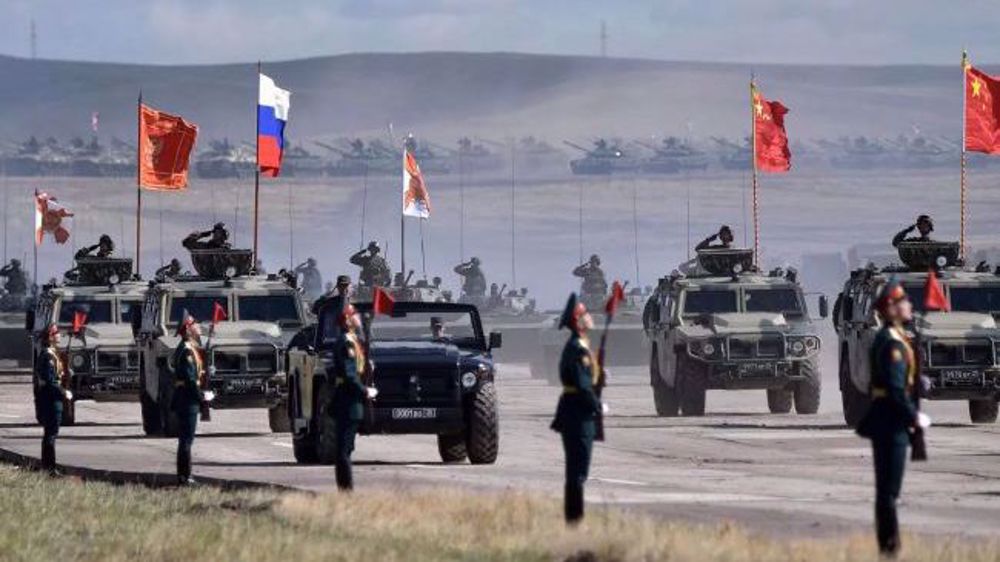
China warns Ukraine over 'irresponsible' claim of Chinese soldiers in war
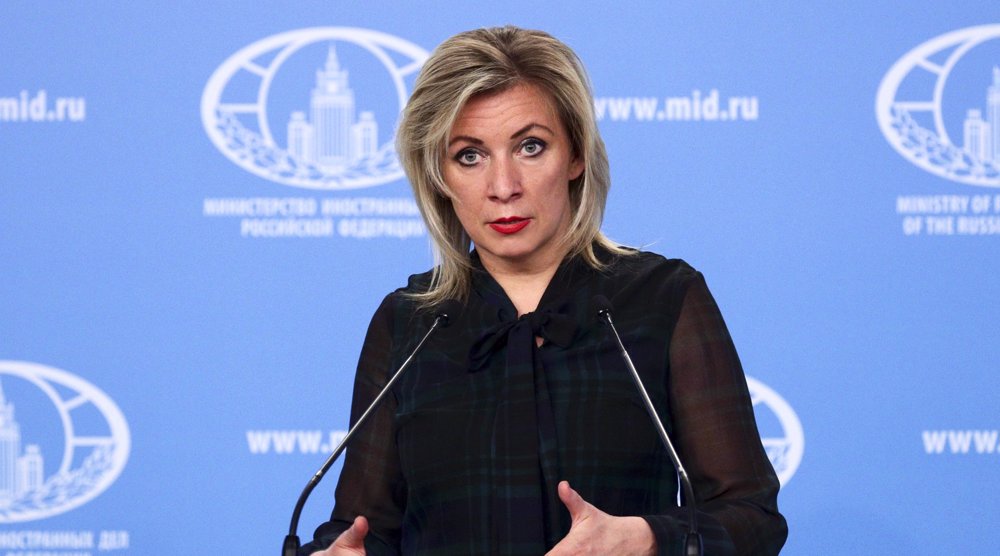
World growing tired of endless threats against Iran: Russia
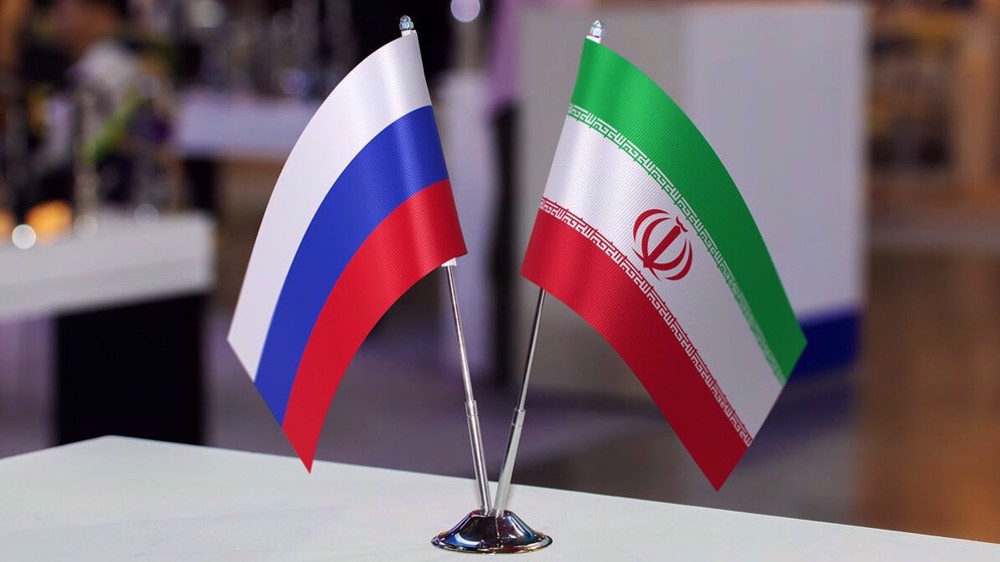
Russia’s State Duma approves 20-year strategic partnership treaty with Iran
Iran condemns terror attack in southeast that killed 8 Pakistani nationals
Deir al-Balah massacre: Israeli airstrikes killed 6 brothers at once
Iran currency surges on positive news from Iran-US talks
VIDEO | Spain’s Seville hosts concert in solidarity with Palestinians
VIDEO | Press TV's news headlines
Saudi Arabia, US to sign agreement on civil nuclear program: Energy secretary
Many wounded civilians die under Gaza rubble due to lack of equipment: Civil Defense
'Ugliest form of genocide': Palestine condemns Israel's attack on Gaza hospital


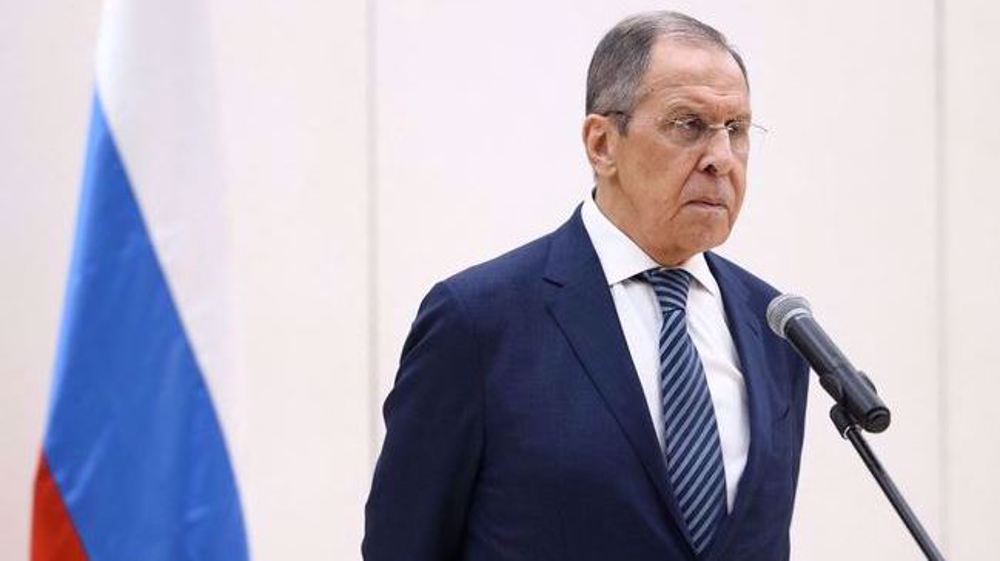
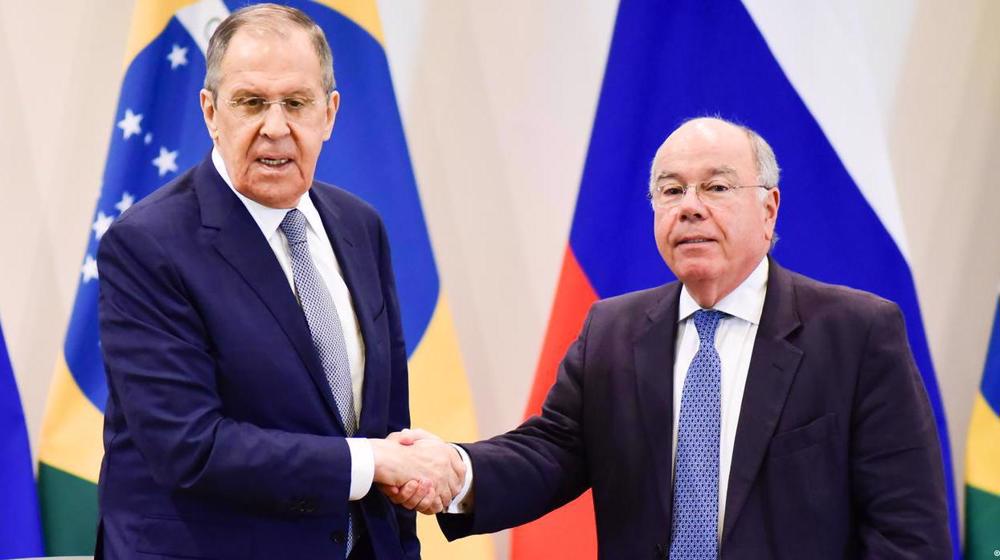
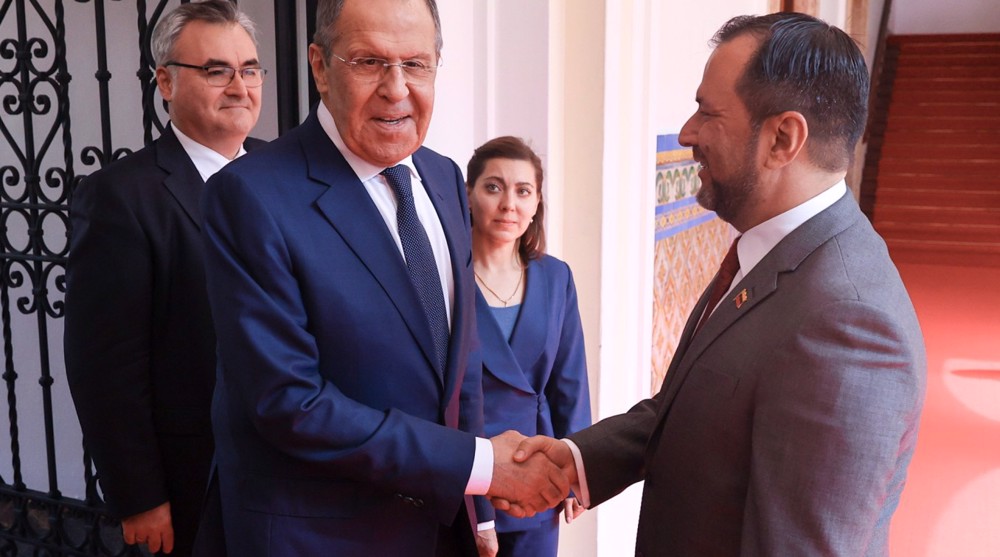



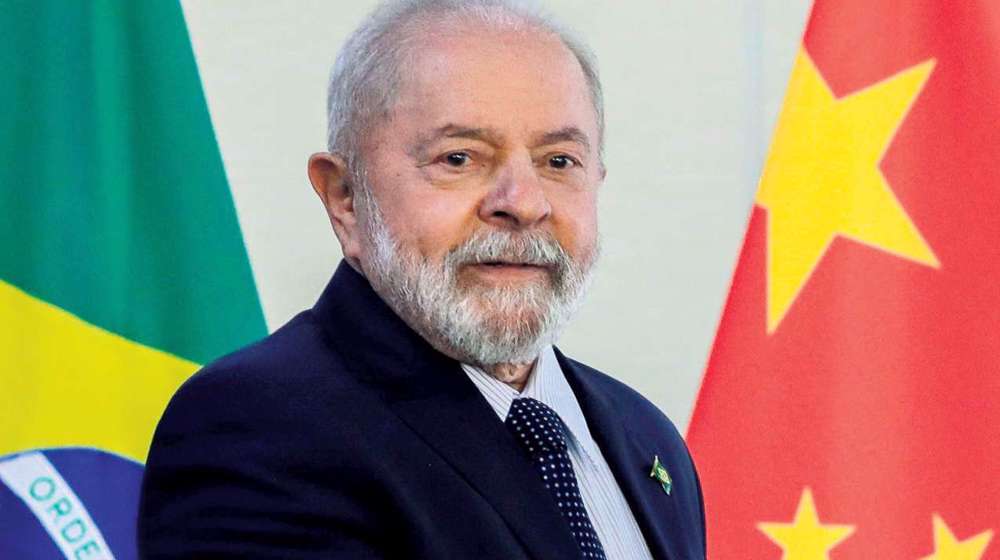
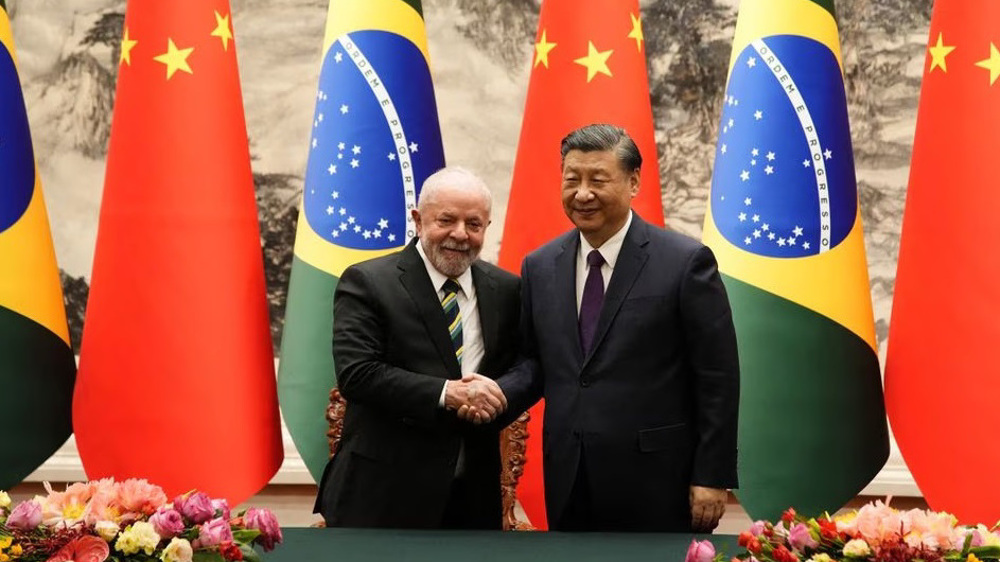
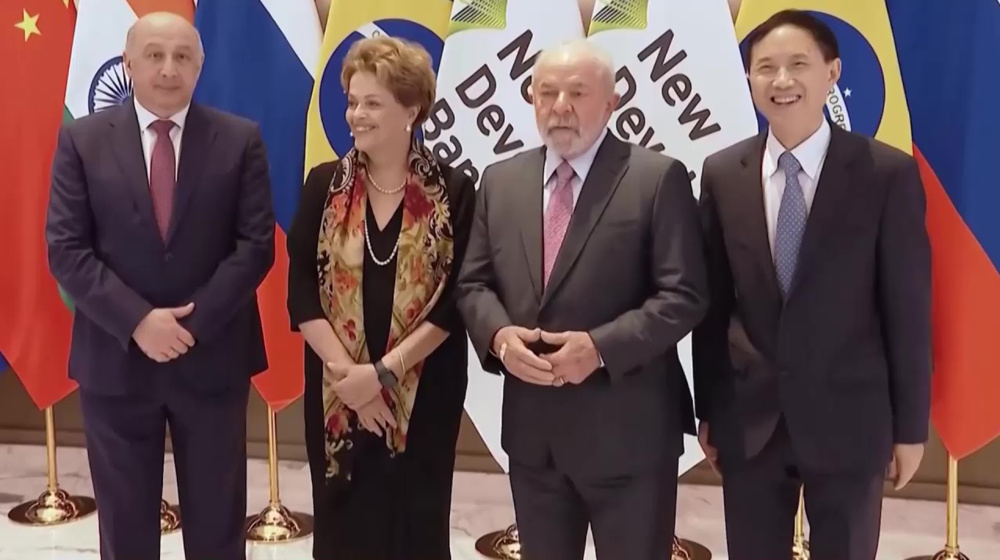
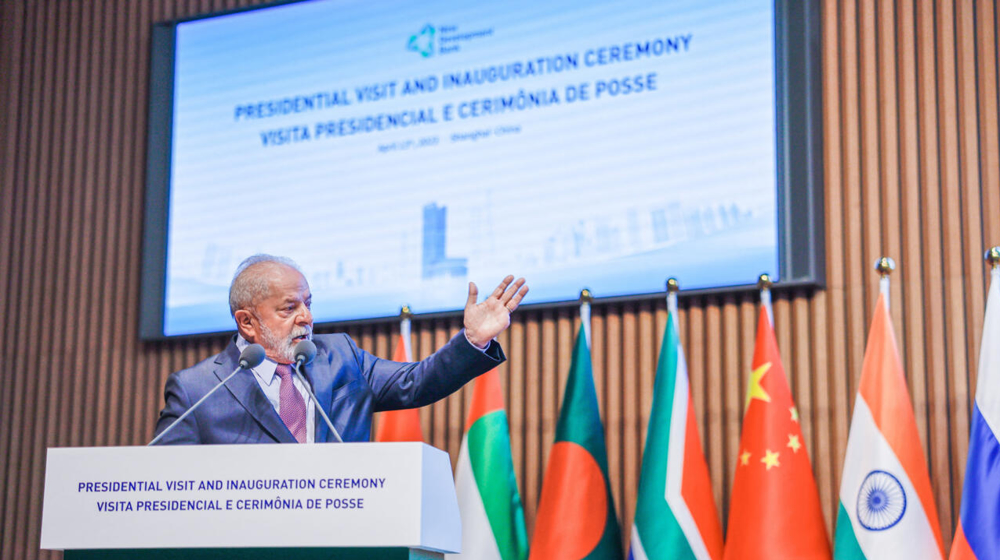
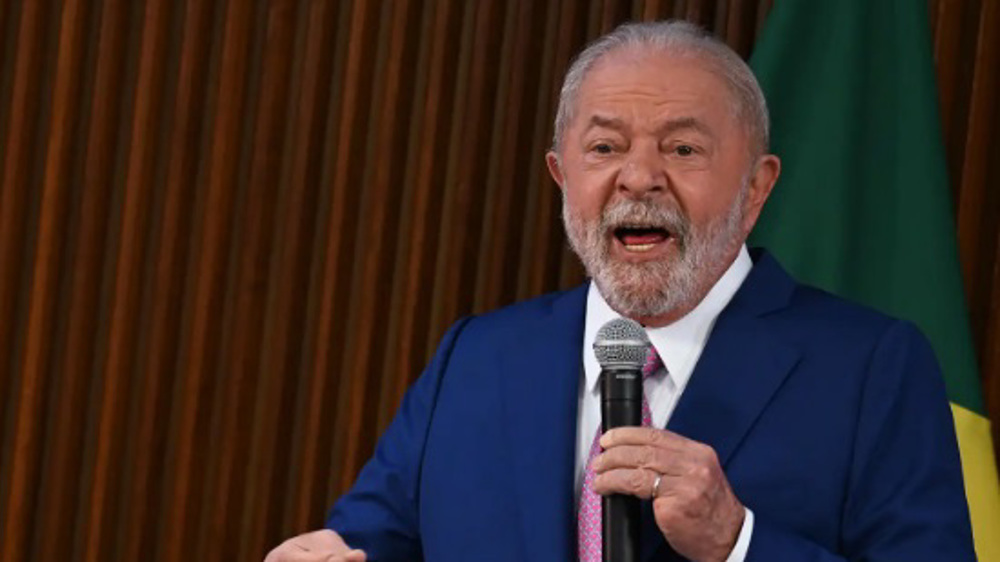

 This makes it easy to access the Press TV website
This makes it easy to access the Press TV website